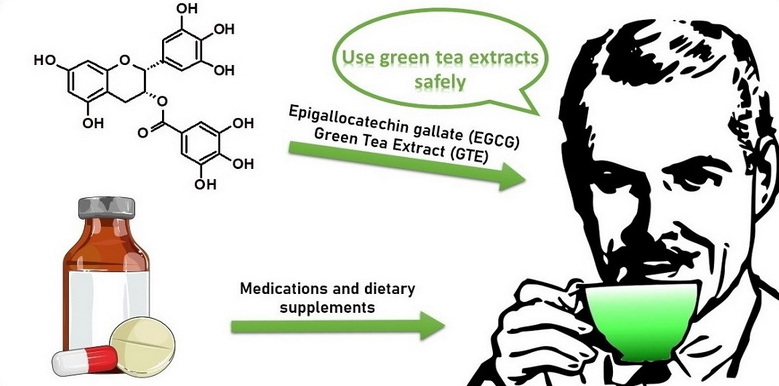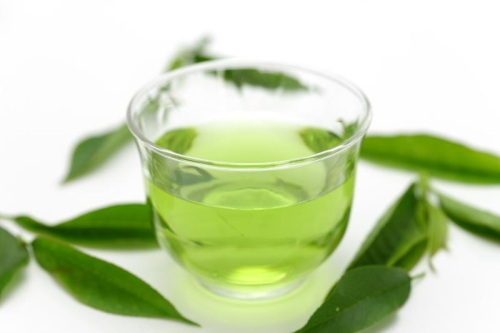Content Menu
● Understanding Green Tea Extract
● Benefits of Green Tea Extract
● How to Take Green Tea Extract Supplements
>> 1. Choose the Right Form
>> 2. Determine the Proper Dosage
>> 3. Timing of Consumption
>> 4. Consider Caffeine Content
>> 5. Be Consistent
>> 6. Stay Hydrated
● Precautions and Potential Side Effects
● Tips for Choosing a Quality Green Tea Extract Supplement
● Incorporating Green Tea Extract into Your Routine
● Conclusion
● Frequently Asked Questions
>> 1. Can I take green tea extract on an empty stomach?
>> 2. How long does it take to see results from green tea extract supplements?
>> 3. Can I drink green tea instead of taking supplements?
>> 4. Are there any groups of people who should avoid green tea extract supplements?
>> 5. Can I take green tea extract supplements long-term?
● Citations:
Green tea extract supplements have gained popularity in recent years due to their potential health benefits. These supplements are concentrated forms of green tea, containing high levels of beneficial compounds like catechins and epigallocatechin gallate (EGCG). In this comprehensive guide, we'll explore the proper ways to take green tea extract supplements, their potential benefits, and important considerations to keep in mind.

Understanding Green Tea Extract
Green tea extract is derived from the leaves of the Camellia sinensis plant, the same plant used to make green tea. The extract is a concentrated form of the beneficial compounds found in green tea, particularly catechins and EGCG, which are potent antioxidants[1].
Benefits of Green Tea Extract
Before delving into how to take green tea extract supplements, it's important to understand their potential benefits:
1. Antioxidant Properties: Green tea extract is rich in polyphenols, particularly catechins, which have powerful antioxidant effects. These compounds help protect cells from damage caused by free radicals[1].
2. Weight Management: Some studies suggest that green tea extract may aid in weight loss and fat burning, potentially due to its caffeine content and the effect of catechins on metabolism[2].
3. Heart Health: Regular consumption of green tea extract may help lower the risk of cardiovascular disease by reducing bad cholesterol levels and improving blood flow[2].
4. Brain Function: The caffeine and L-theanine in green tea extract may improve brain function, including aspects like mood, reaction time, and memory[3].
5. Liver Protection: Some research indicates that green tea extract may help protect the liver from damage and reduce the risk of liver disease[1].
How to Take Green Tea Extract Supplements
Now that we understand the potential benefits, let's explore how to properly take green tea extract supplements:
1. Choose the Right Form
Green tea extract supplements come in various forms, including:
- Capsules
- Tablets
- Liquid extracts
- Powders
Capsules and tablets are the most common and convenient forms. They provide a standardized dose and are easy to take. Liquid extracts and powders offer more flexibility in dosing but may have a stronger taste.
2. Determine the Proper Dosage
The appropriate dosage of green tea extract can vary depending on the specific product and its concentration of active compounds. Generally, studies have shown favorable effects with a green tea extract intake of 300-800 mg per day[2][3].
It's crucial to follow the dosage instructions on the product label or consult with a healthcare professional to determine the right dose for you.
3. Timing of Consumption
The timing of when you take green tea extract can affect its absorption and potential side effects:
- With meals: Taking green tea extract with food can help reduce the risk of stomach upset and improve absorption of some compounds.
- Between meals: Some people prefer taking green tea extract between meals to potentially enhance its fat-burning effects.
- Before exercise: Taking green tea extract before exercise may boost its fat-burning potential.
4. Consider Caffeine Content
Green tea extract often contains caffeine, which can vary from mild (2-50 mg) to high (>200 mg) per serving. If you're sensitive to caffeine or don't regularly consume it, start with a supplement that contains a modest amount of caffeine (30-50 mg) and adjust your intake accordingly[3].
5. Be Consistent
For optimal results, it's important to take green tea extract consistently. Many of the potential benefits are associated with regular, long-term use.
6. Stay Hydrated
Green tea extract can have a mild diuretic effect. Make sure to drink plenty of water throughout the day to stay hydrated.

Precautions and Potential Side Effects
While green tea extract is generally considered safe for most people when taken in moderate amounts, there are some precautions to keep in mind:
1. Liver Health: In rare cases, high doses of green tea extract have been associated with liver problems. If you experience symptoms such as abdominal pain, dark urine, or jaundice, stop using the supplement and consult a healthcare provider immediately[4].
2. Caffeine Sensitivity: The caffeine in green tea extract can cause side effects in sensitive individuals, including anxiety, insomnia, rapid heart rate, and increased blood pressure[7].
3. Iron Absorption: Green tea extract may interfere with iron absorption. If you have iron-deficiency anemia, consider taking green tea extract between meals[2].
4. Medication Interactions: Green tea extract can interact with certain medications, including blood thinners and some antibiotics. Always consult with a healthcare provider before starting any new supplement regimen[7].
Tips for Choosing a Quality Green Tea Extract Supplement
When selecting a green tea extract supplement, consider the following:
1. Standardization: Look for products standardized to contain a specific amount of catechins or EGCG.
2. Third-Party Testing: Choose supplements that have been tested by independent third-party organizations for purity and potency.
3. Reputable Brands: Opt for well-known, reputable brands with a history of producing high-quality supplements.
4. Ingredient List: Check the ingredient list for any additives or fillers you may want to avoid.
5. Form: Consider which form (capsules, tablets, liquid, or powder) best fits your lifestyle and preferences.
Incorporating Green Tea Extract into Your Routine
Here are some ways to incorporate green tea extract supplements into your daily routine:
1. Morning Boost: Take a capsule with breakfast to start your day with an antioxidant boost.
2. Pre-Workout: Take green tea extract about 30 minutes before exercise to potentially enhance fat burning.
3. Afternoon Pick-Me-Up: If your supplement contains caffeine, consider taking it in the early afternoon for a gentle energy boost.
4. Evening Ritual: If your supplement is decaffeinated, you can take it in the evening as part of your wind-down routine.
Remember to always follow the dosage instructions on the product label and consult with a healthcare provider if you have any concerns.
Conclusion
Green tea extract supplements offer a convenient way to potentially benefit from the powerful compounds found in green tea. When taken properly, these supplements may support weight management, heart health, brain function, and overall well-being. However, it's crucial to choose a high-quality supplement, follow proper dosage guidelines, and be aware of potential side effects and interactions.
Remember that while supplements can be beneficial, they should not replace a balanced diet and healthy lifestyle. Always consult with a healthcare professional before starting any new supplement regimen, especially if you have pre-existing health conditions or are taking medications.

Frequently Asked Questions
1. Can I take green tea extract on an empty stomach?
While it's generally safe to take green tea extract on an empty stomach, some people may experience mild stomach discomfort. If this occurs, try taking the supplement with food or switching to a different time of day.
2. How long does it take to see results from green tea extract supplements?
The time it takes to see results can vary depending on the individual and the specific benefits you're looking for. Some effects, like increased energy, may be noticeable within hours, while others, such as weight management or improved heart health, may take weeks or months of consistent use.
3. Can I drink green tea instead of taking supplements?
Yes, drinking green tea can provide many of the same benefits as green tea extract supplements. However, supplements offer a more concentrated dose of beneficial compounds. If you prefer drinking tea, aim for 3-5 cups per day to maximize potential benefits.
4. Are there any groups of people who should avoid green tea extract supplements?
Pregnant or breastfeeding women, people with liver problems, and those with certain heart conditions should consult a healthcare provider before taking green tea extract supplements. Additionally, individuals taking blood thinners or certain other medications should seek medical advice before use.
5. Can I take green tea extract supplements long-term?
Green tea extract is generally considered safe for long-term use when taken at appropriate doses. However, it's always a good idea to periodically reassess your supplement regimen with a healthcare provider to ensure it continues to meet your health needs.
Citations:
[1] https://pubmed.ncbi.nlm.nih.gov/38031409/
[2] https://www.drugs.com/mtm/green-tea.html
[3] https://www.elo.health/articles/green-tea-extract-supplements/
[4] https://www.urmc.rochester.edu/encyclopedia/content?contenttypeid=19&contentid=greenteaextract
[5] https://www.vumc.org/poison-control/toxicology-question-week/march-12-2021-what-are-adverse-effects-green-tea-extract
[6] https://onlinelibrary.wiley.com/doi/10.1155/2021/7170736
[7] https://www.webmd.com/vitamins/ai/ingredientmono-960/green-tea
[8] https://pmc.ncbi.nlm.nih.gov/articles/PMC3746392/
[9] https://www.healthline.com/nutrition/10-benefits-of-green-tea-extract
[10] https://www.medicalnewstoday.com/articles/269538

 English
English 




























